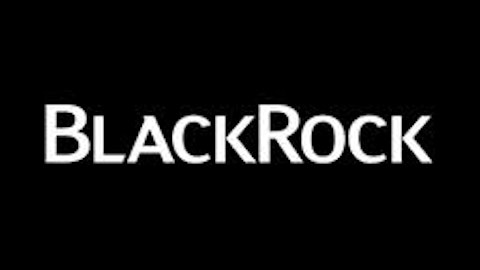
Spices as the next wellness frontier
There’s a renewed interest in Hippocrates’ not long ago derided philosophy, which has resulted in huge growth in organic foods and vitamin and mineral supplements. These trends have made a long-term winner out of Whole Foods Market, Inc. (NASDAQ:WFM), and a winner since its IPO out of General Nutrition Centers, up 153% in two years.
I think spices are the next wellness frontier, as many have reputed (and documented, in some cases) medicinal value.
According to McCormick & Company, Incorporated (NYSE:MKC)’s 2012 Annual Report, “Increasingly, industrial customers are turning to McCormick … to improve the health profile of their products … As evidence of this, more than 30% of our 2012 new product briefs for industrial customers had some healthy attribute.”
The big opportunity is on the retail end because of its larger margins. Consumer awareness of the health benefits of some spices is increasing. It’s only a matter of time before more people start thinking of buying spices in the same way they do as buying vitamins and mineral supplements, and even considering them items in which to stock their medicine cabinets, not just their spice racks.
Let’s use a SWOT Analysis (Strengths, Weaknesses, Opportunities & Threats) to look at McCormick.
STRENGTHS
(1) Brand Name
Competition is fractured. In the U.S., ACH Foods’ Spice Islands brand is a notable middle-market competitor. ACH is a subsidiary of the $22 billion market cap Associated British Foods plc (NASDAQOTH:ASBFY).
WEAKNESSES
(1) Organic offerings
Given its size and No. 1 position, McCormick & Company, Incorporated (NYSE:MKC) has not had as many organic offerings as one might expect. However, a recent view of the company’s product line indicates the company has been beefing up its organic offerings.
OPPORTUNITIES
There are trends other than heath and wellness that should benefit McCormick. These include:
(1) Popularity of ethnic cuisines
The company’s annual report mentions the trend toward consumers exploring authentic ethnic cuisines, many of which contain more herbs and spices than so-called typical American fare.
(2) Greater international expansion
McCormick is focused on growing its international business, particularly in the emerging markets. In 2012, the emerging markets accounted for 14% of revenue, which is double that of five years ago. McCormick & Company, Incorporated (NYSE:MKC)’s goal is to reach 20% by 2015. In China, revenue grew 23% in 2012, based largely on increased consumer demand (rather than price hikes).
THREATS
(1) Growth of (conventional grocery) store-brand products
As previously stated, the company produces roughly half of store-brand spices. This is a double-edged sword. While McCormick’s margins are lower on these products than its own brands, a small chunk of the store-brand pie is better than none. However, the threat is the store-brand pie growing and taking market share away from McCormick’s brands.
Given the high brand loyalty among spice buyers – about 64% usually buy the same brand – the growth of store brands is not yet as much of a concern as it is with other products. But this is a threat investors need to keep an eye on.
(2) The squeezing of the middle-market
This dynamic has largely happened in the retailing business. Wal-Mart Stores, Inc. (NYSE:WMT) and Target Corporation (NYSE:TGT) have done well with their focus on providing low prices for many categories of products. Upper-middle end specialty retailers, such as Lululemon Athletica and Michael Kors Holdings Ltd (NYSE:KORS) have carved out nice niches. Meanwhile, the J.C. Penney Company, Inc. (NYSE:JCP) of the world — where much of middle America used to shop — have largely been left behind with no discernible identity.
I don’t think the threat is as great to middle-market grocery brands and stores, but some squeezing has occurred. McCormick & Company, Incorporated (NYSE:MKC) doesn’t need to address the lower-end threat (dollar store spices), but it might be well served to address the middle-upper end threat from Whole Foods Market, Inc. (NASDAQ:WFM) and others. Specialty retailers such as Penzey’s, which sells fresh spices via a limited (but growing) number of retail stores and has an online site, can be considered a limited threat. However, Whole Foods, given it carries a private label line of packaged organic spices and herbs, presents a greater threat. (Whole Foods’ private label line is manufactured by Frontier Natural Products Co-op.)
Foolish bottom line
McCormick’s stock is pricey based on conventional measures (23 P/E, 20 forward P/E, 2.7 5-year PEG for a company with EPS growth of 9% in 2012), but that’s to be expected for a stock with these attractive features: No. 1 position in industry; strong brand name; high-quality (consistent) earnings; a Dividend Aristocrat (one of a small number of companies that have raised dividends each year for at least 25 years); and a low stock price volatility (beta of 0.45).
The increasing penetration of the emerging markets, particularly China, should keep growth chugging along.
A bonus would be a Berkshire Hathaway Inc. (NYSE:BRK.A) buyout. I know speculation on acquisition targets runs rampant, but there’s little doubt that McCormick is on the possibility list (my other top pick is J.M. Smucker Company).
The article McCormick Isn’t Just a Food Industry Play originally appeared on Fool.com and is written by BA McKenna.
Copyright © 1995 – 2013 The Motley Fool, LLC. All rights reserved. The Motley Fool has a disclosure policy.


